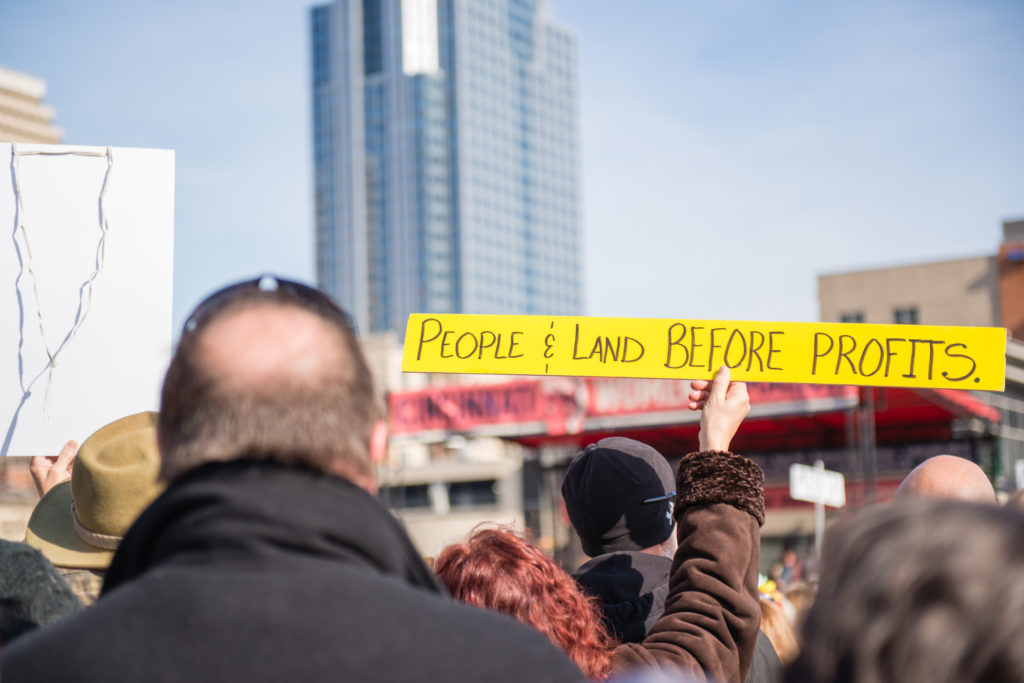
Investment is the allocation of resources to generate value. The ways government agencies, businesses, and philanthropy invest reflect our national values, priorities, and mindsets. How we invest—and who has the resources to invest—is inextricably linked to our prevailing metasystems: capitalism, democracy, and racism.
What You Need to Know
These key issues are essential to understanding how we can support thriving people and places.
Investment: Resource Allocation
To date, most investors have either consciously or unconsciously supported the existing system of inequality. We must reframe Americans’ mental models toward shared fate and equal opportunity to drive well-being:
- Social value is just as important as financial returns: Short-term profits need to take a back seat to sustainable profits and social value creation.
- Financial leaders at the federal level and in the national banking system need to address systemic racism in the profession.
- Philanthropy should fund infrastructure for system change, not isolated projects.
- Reduce sheltered decision making in philanthropy by involving the community in grantmaking decisions.
- Adopt state-level global budgeting to allocate public resources based on shared well-being goals and allow for sufficient investment in the vital conditions.
- Budgets should include direct funding and incentives that reward long-term value. For example, investments in early childhood that generate savings years later by reducing societal costs and increasing tax revenue.
Historical Context
WE HAVE FAILED TO CREATE AN ECONOMY THAT WORKS FOR EVERYONE. The notion that the marketplace will create an equitable society, if left to its own devices, has been proven wrong repeatedly. The stock market and lending markets, backstopped by the Federal Reserve, disproportionately benefit the top 10%; the rich self-finance robust health care and high- quality education. Wealthy and powerful interests benefit from our economic system, while the vast majority of the population remains vulnerable to economic shock.
2020 Social Impact Exchange Conference
Unifying leadership means building a shared vision of what we want the world to become. How do we move ahead in ways that not only help us recover and heal, but also make us stronger and, most importantly, transform the flawed systems to ensure equity for all?
Current Conditions
Efforts initiated by government and philanthropy to address the gap between capitalism’s winners and losers have been implemented in silos and have rarely gone to scale. Initiatives lack the systemic approaches needed to shift core societal structures and behaviors, often trying to mitigate symptoms or, worse, to fix communities. These efforts badly miss the primary cause of inequities: systems that persistently impede communities’ success.
“Capitalism is the meta-system within which the field of financing sits, and which essentially governs how the field of financing operates. Our current form of capitalism is designed to benefit a few at the top who control the means of capital and political power. The disparities in wealth and the economic fragility of 2/3 of Americans make it painfully obvious that the system is not working for the majority of Americans. the work of recovery, mercy, justice and well-being. They are already present in the places of greatest pain and creativity.”
ALEXANDER ROSSIDES & COLLEAGUES
Pivotal Moves
A Selection of Ideas for Changing Course
PIVOTAL MOVES are decisive actions that could begin now and change the course of community life relatively quickly.
We need to build household and community wealth by scaling successful innovations and deepening investment in what works. When we pursue financial programs and policies that protect consumers, give families greater control over finances, and improve our shared capacity to absorb financial shock, we are able to build wealth and assets—now and for future generations.
PROMOTE SHARED OWNERSHIP
Grow the number of B-Corps and for-benefit enterprises through tax incentives, preferential financing terms, marketing support, and other means.
USE THE TAX CODE
Create higher baseline tax rates for corporations, and offer tax breaks for community investment, allowing corporations to increase after-tax net profits while contributing to low-income community wealth.
Use sellable tax credits to create a secondary market, with limits on the returns available using tax breaks and tax credits.
EXPAND & LEVERAGE COMMUNITY DEVELOPMENT FINANCIAL INSTITUTIONS (CDFI)
Increase the federal government’s funding of CDFIs.
Lift the Small Business Administration’s moratorium on new Community Advantage lenders, allowing additional CDFI participation and expediting the approval of new lenders.
Create funds of funds for CDFIs to enable them to sell their current loans to a secondary market and make new loans.
USE THE FEDERAL RESERVE
Provide debt relief to borrowers. The Federal Reserve should purchase restructured pre-COVID-19 loans.